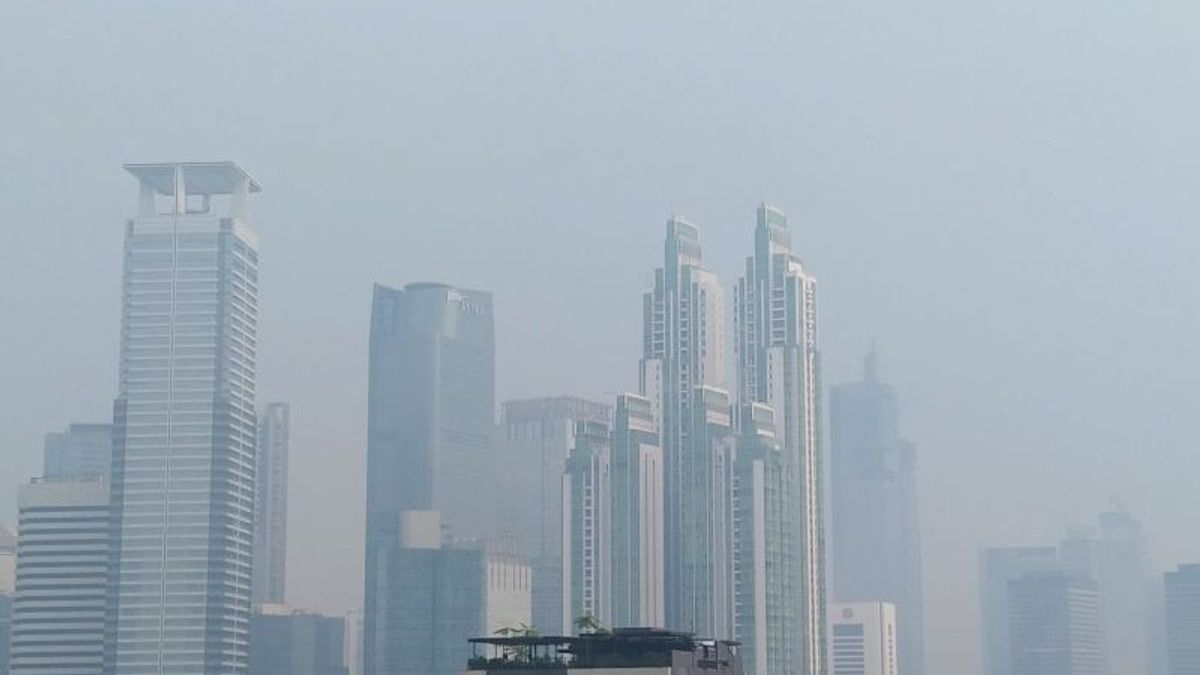JAKARTA - The DKI Jakarta Provincial Government (Pemprov) is intensifying early detection of diseases due to air pollution to the level of community unit (RW).
"We are aggressively conducting examinations for non-communicable diseases, such as the result of this air pollution. This program is up to RW, the puskesmas, for early detection," said Sanitarian Jakarta Health Service Siti Suwanti in an online discussion on the impact of air pollution in Jakarta, Antara, Thursday, September 29.
The goal, he continued, is to accelerate the handling of patients exposed to diseases caused by air pollution.
He explained that the diseases suffered a lot due to air pollution include acute respiratory infection (ARI), tuberculosis (TBC), heart disease, asthma to chronic lung disease. In addition, the direct impact felt by the community when inhaling pollutants include eye and nose irritation.
In addition to disturbing health, he continued, air pollution also causes economic losses, one of which is the high cost of contracting the disease.
Air pollution, he added, is mostly produced from human activities, including emissions from vehicles, factories, households to burning garbage.
He also appealed to the public to participate in reducing the use of private vehicles and switching to using mass public transportation.
The pollutants that are dangerous for the human body are particulate matters (PM) which are very small at 2.5 micrograms or PM2.5.
Based on a report by the Air Quality Life Index (AQLI) developed by the Institute of Energy Policy from the University of Chicago, United States, air pollution has an impact on the number of living expectations in Jakarta.
Berdasarkan laporan global terbaru pada Juni 2022, AQLI mengungkapkan pollusi udara salah satunya di Jakarta mendorong penduduknya kehilangan tiga hingga empat tahun harapan hidup pada 2020.
"The most polluting areas in 2020 are around the cities of Mandalay, Hanoi and Jakarta where the population has lost three to four years of life's hope," the AQLI report said.
Even so, the report stated that Jakarta and surrounding areas include Bogor, Depok, Bekasi and Tangerang (Jabodetabek), noting that PM 2.5's concentration on average decreased by 16 percent in 2020 to 30.1 micrograms per cubic meter.
The English, Chinese, Japanese, Arabic, and French versions are automatically generated by the AI. So there may still be inaccuracies in translating, please always see Indonesian as our main language. (system supported by DigitalSiber.id)








